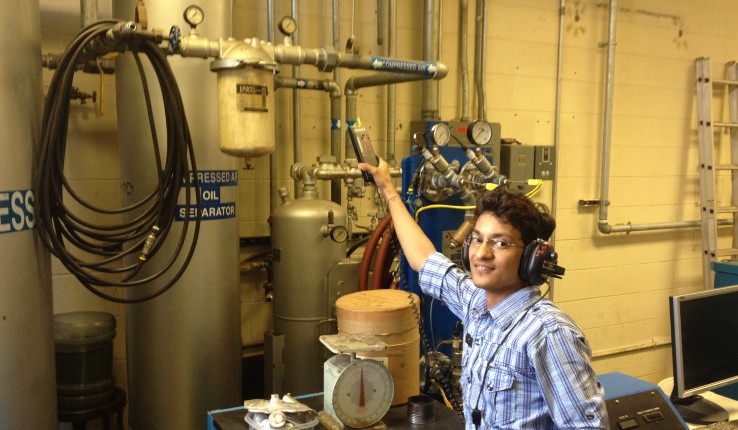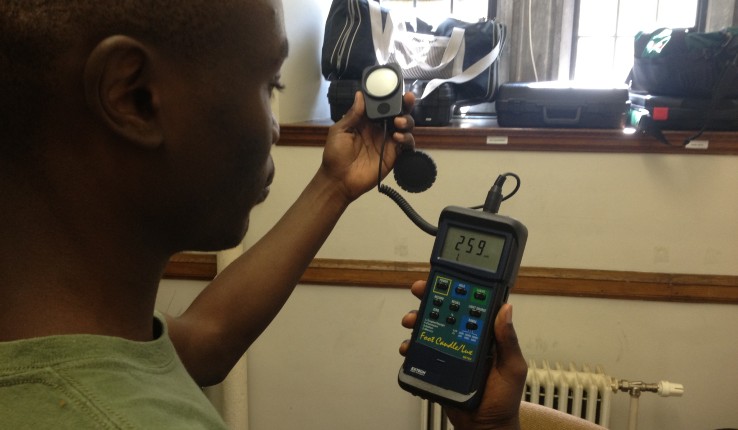Lehigh is one of 32 universities that will focus on improving productivity, enhancing cybersecurity, promoting resiliency planning, and providing training to entities located in disadvantaged communities. The cohort will also engage in a new pilot project to expand to the commercial building market. As part of the pilot, selected IACs will partner with community colleges and technical programs to train diverse students and professionals to conduct energy-efficiency assessments of small- to medium-sized buildings, including those located in disadvantaged communities.
Lehigh University's Industrial Assessment Center (IAC) provides industrial assessment service to small- and medium-sized manufacturing companies in eastern Pennsylvania and New Jersey. The goals of the LUIAC are to recommend measures to conserve energy, reduce waste, and enhance productivity. By accomplishing these goals, the LUIAC improves the overall cost competitiveness of the companies it serves.
“Manufacturing is seeing rapid change due to application of new methods like 3-D printing and new approaches from data science and analytics. Lehigh has many outstanding faculty working to innovate and advance manufacturing through research and training programs,” said Nathan Urban, Lehigh’s provost and senior vice president of academic affairs and interim president. “IAC’s specific mission of enhancing sustainability for small- to medium-sized companies is critical to the continued vitality of this important sector of the regional economy. We are proud to be part of this national program of leading universities. We appreciate the continued support for research and education at Lehigh by Representative [Susan] Wild and her role in helping promote opportunities for economic development and innovation in the Lehigh Valley."
To date, the IACs program, one of DOE’s longest-running programs managed by the Advanced Manufacturing Office (AMO), has provided nearly 20,000 no-cost assessments for small- and medium-sized manufacturers and more than 147,000 recommendations for improvement measures. Assessments typically identify more than $130,000 in potential annual savings opportunities.
"Lehigh University is nationally recognized for its excellence in research and leading innovations, and this selection as an Industrial Assessment Center reflects its strength as an institution and commitment to our community,” said U.S. Representative Susan Wild (PA-07). “This choice will allow Lehigh to continue and expand upon its work to create jobs, reduce emissions, and promote sustainability among our manufacturers. I'm thrilled that a pillar of the Greater Lehigh Valley is getting the recognition it deserves from the Department of Energy."
“For over 20 years, the Lehigh Industrial Assessment Center has been educating the next generations of energy engineers,” said Alparslan Ozetkin, a professor in the department of mechanical engineering and mechanics and director of the Lehigh IAC. “We are proud to forward the IAC missions to save energy, reduce the carbon footprint for small- and medium-sized manufacturing plants, and train an energy-efficiency workforce. Lehigh’s IAC graduates Ph.D. and Master’s students, as well as offers undergraduate and graduate-level Energy Efficiency Practicum. We are pleased to be part of this latest cohort and look forward to continuing this work with DOE’s support.”
The IAC missions are to save energy, reduce the carbon footprint for small- and medium-sized manufacturing plants, and train the next generations of energy engineers. For over 20 years, the Lehigh IAC has graduated several Ph.D. and Master’s students. In addition, undergraduate and graduate-level Energy Efficiency Practicum courses have been offered through the centers. Many of these trained students landed high-level positions in Energy companies nationwide. The Lehigh Center will continue to educate the next generations of energy engineers in the next five years.
Visit the Industrial Assessment Centers website to learn more about the program. A collection of all publicly available assessment and recommendation data is available online in the IAC Database and the database can be searched by industry type, company size, date, products, and energy costs.
This announcement is part of DOE’s 2021 Future of Manufacturing campaign. For more information on DOE’s commitment to creating a resilient American manufacturing future that supports economy-wide decarbonization, and to join the conversation, visit the AMO website.



